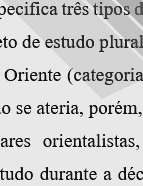

................................
However, some contributions are worthy of note, such as the controversy - at the same time memorialistic and historiographical - of the early 1990s between Jorge Borges de Macedo and Fernando Piteira Santos (Jornal de Letras, 21 July 1992, p.6), and the research conducted within the scope of the History of History or the History of Communism (Madeira, "Os novos remexedores da História" [“The new stirrers of History”], 2007; Neves, Comunismo e Nacionalismo em Portugal [Communism and Nationalism in Portugal], 2008). Such contributions constitute the bibliographical framework that have made this text possible.
Historical Phases of Marxist Historiography
In an attempt to trace the presence of Marxism in historiography in Portugal between the mid-1930s and 1974 (the upper chronological limit of this dictionary), three phases of its emergence and consolidation may be highlighted.
The first phase was marked by the commitment to Marxism of a group of historians, mainly graduates from the Faculdade de Letras da Universidade de Lisboa [Faculty of Letters of the University of Lisbon] in the late 1930s and early 1940s, who participated in both political initiatives carried out by the opposition movements in general and the PCP in particular, and in cultural and scientific initiatives within the university and publishing environment, an example of which is the Biblioteca Cosmos [Cosmos Library], directed by Bento de Jesus Caraça (Neves, “A Biblioteca Cosmos” [ "The Cosmos Library"], 2006). From an institutional point of view, this first phase of Marxist historiography gained expression - albeit rather fleetingly - in the Sociedade Portuguesa para a História da Civilização [Portuguese Society for the History of Civilisation] (SPHC).
The SPHC, an initiative of Vitorino Magalhães Godinho in 1947, brought together the young Jorge Borges de Macedo, entrusted by Godinho with the more executive tasks, other young historians who had been Godinho's former students, such as Joaquim Barradas de Carvalho, and also historians such as António José Saraiva, Armando Castro and Flausino Torres.
